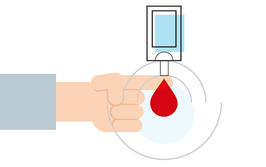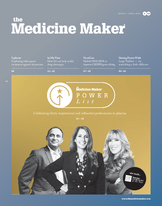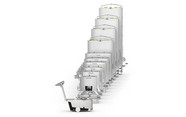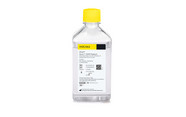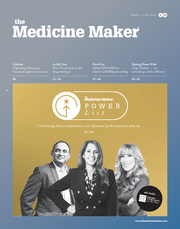Quality Analysis for Life
The data generated by analytical science are crucial to pharma decision making – so let’s adopt a lifecycle management approach to method development to ensure continued excellence.

For a method to yield reliable, reproducible results over time, it must remain robust throughout the entire lifecycle. The concept of lifecycle management for ensuring the quality of pharmaceutical products is well understood, and has now inspired a relatively more modern concept: method lifecycle management (MLCM). MLCM provides a framework for defining the criteria for and development of analytical methods. Ultimately, this should lead to a more structured and scientific approach to analytical method development (1).
Appropriate and effective analytical methods are crucial for pharmaceutical decision-making because they provide information on the impact of process changes and the quality of pharmaceutical products. As such, it is essential that the quality of analytical methods be assured all the way from development and validation to routine use and transfer. Both CDMOs and pharmaceutical manufacturers should observe the three stages of MLCM:
- Method design and development. Analytical target profiles (ATPs) should drive method selection, design, and development activities, and facilitate continuous improvement of analytical methods.
- Method performance qualification. Confirmation is required to ensure that the analytical procedure is capable of producing reproducible data that consistently meet the ATP. This stage should also consider analytical transfer and the implementation of compendial procedures.
- Continued method performance verification. This is necessary to ensure that the analytical procedure remains continuously in a state of control.
In addition, we recommend standardization of instrumentation across multiple laboratories in different locations. Accurate and reliable equipment is integral to MLCM, so advanced technology, such as ultra-high performance liquid chromatography (UHPLC) and mass spectrometry instrumentation, as well as sophisticated chromatography data software, should be considered. In addition, software that can be used across multiple sites to improve information management, storage and data-mining capabilities is essential.
Pharmaceutical regulatory bodies are also pushing companies to enhance their approach to method development by expanding and updating industry regulations. The US Pharmacopeia (USP), for example, has published a series of “stimuli articles” that inform a proposed USP General Information Chapter <1220> “The Analytical Procedure Lifecycle” (2). The articles examine how the modern concept of a lifecycle model, described in the International Conference for Harmonization (ICH) guidelines Q8, Q9, and Q10, can be applied to analytical methods. The article suggests that “the traditional approaches to method validation, transfer, and verification should be integrated into the analytical procedure lifecycle process, rather than being viewed as separate entities”.
In addition to the new USP Chapter <1220>, the ICH is drafting two new guidelines: Q12 “Pharmaceutical Product Lifecycle Management” and Q14 “Analytical Procedure Development/Validation” (3). These should provide additional definitions to encourage the implementation of MLCM.
In our view, it is important for companies to consider analytical quality by design (AQbD). The concept of QbD is also well known in the pharma industry – so let’s apply it to the analytical sphere! Through the application of prior knowledge and an initial risk assessment, AQbD makes it possible to evaluate and prioritize sources of variability that may affect method performance. It helps identify potential issues in the lifecycle and eliminates them based on the method understanding obtained during the development work. In method development, AQbD helps inform which decisions fit the method’s purpose and increases awareness of the risks to overcome. Additionally, greater understanding as a result of this approach reduces the number of failures and transfer issues that occur over the lifecycle of the method. For commercial processes, the high quality of data provided by AQbD methods may allow for more timely data release, reduced regulatory risk, and lower costs. The design of experiments is used in data trending and how big data will be evaluated will play an important role in understanding the method capacity to deliver accurate data through its lifecycle. The better the industry’s understanding of the impact that changes in method parameters have on the analytical results, the fewer the failures.
Many in the pharmaceutical industry are still skeptical of the changes required to successfully implement MLCM. And, of course, it will take time for people to become comfortable with the concept. But the growing interest in MLCM and AQbD methodologies means that firm regulatory guidelines will likely be in place in the near future – and we believe it’s always best to be prepared. The pharmaceutical industry can use this information to improve methods and enhance regulatory flexibility, which will ultimately cultivate a more standardized industry.


